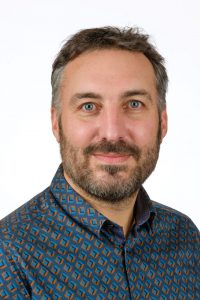
Stein Aerts
KU Leuven
Belgium
EMBO Workshop
This conference will take place at EMBL Heidelberg, with the option to attend virtually. Please see EMBL’s COVID-19 safety policy for testing and other requirements if attending the on-site event.
Genomics, proteomics and quantitative imaging are rapidly moving fields with technological innovations and new biological insights occurring on an almost monthly basis. For example, mass spectrometry-based proteomics is now able to quantitatively assess close to 80% of the proteome which can nowadays be obtained from very low cell numbers. An even greater jump in sensitivity has recently revolutionized genomics with the rapid spread of measurements at the resolution of single molecule and single cells. Development of new methods and instruments has led to the emergence of high content quantitative microscopy, that enables quantification of dozens of phenotypic readouts in single cells.
A common feature of all these techniques is their ability to generate large amounts of high-resolution quantitative data characterizing biological systems at scales ranging from molecular to organismal level. A topical challenge is to convert this data into predictive quantitative models of biological systems. From functional genomics to systems biology is a venue for scientific leaders to discuss their data beyond their field and promote the emergence of ideas and concepts to bridge the gap between technologies and scales to model complex biological systems.
“Attending this conference revealed ideas of methods and tools that can be applied by my team in some aspects of our planned future research. The conference organization and execution skills surpassed the expectation I had of an EMBL event. Thank you for this great experience.” – Joy Ehiwuogu-Onyibe, Federal Institute of Industrial Research, Oshodi (FIIRO), Nigeria
“A very beautifully organized virtual conference with excellent presentations in a professional environment that encourages young researchers!” – Muhammad Nisar Ali, Nigde Omer Halisdemir University, Turkey

KU Leuven
Belgium
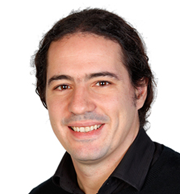
EMBL-EBI Hinxton
UK and
ETH Zurich
Switzerland
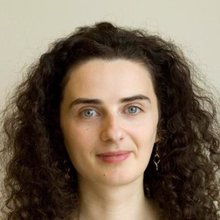
Stanford University
USA
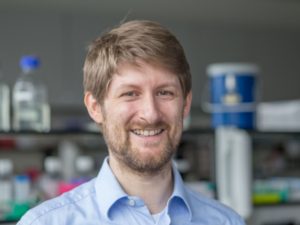
University of Zurich; ETH Zurich
Switzerland
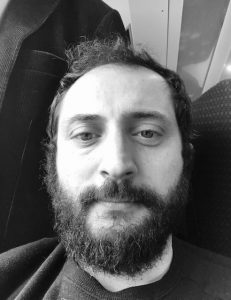
Swiss Federal Institute of Technology Lausanne
Switzerland

University of British Columbia
Canada
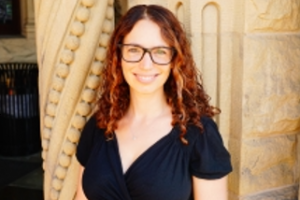
Weizmann Institute of Science
Israel
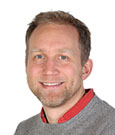
EMBL Heidelberg
Germany
EMBL Heidelberg
Germany
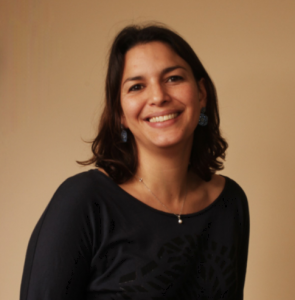
The Institute of Molecular Genetics of Montpellier
France
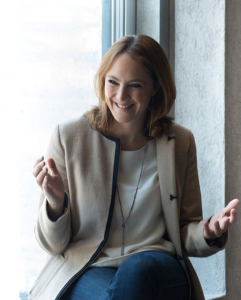
Friedrich Miescher Institute for Biomedical Research
Switzerland
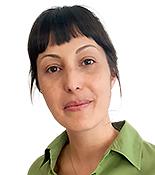
EMBL Heidelberg
Germany
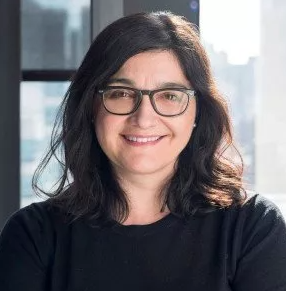
Memorial Sloan Kettering Cancer Center
USA
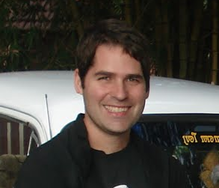
CNRS; INSERM
France
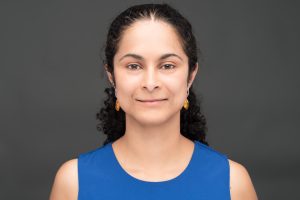
University of Massachusetts Chan Medical School
USA
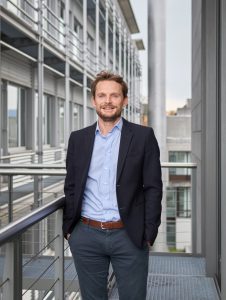
University of Zurich
Switzerland

The Sloan Kettering Institute
USA
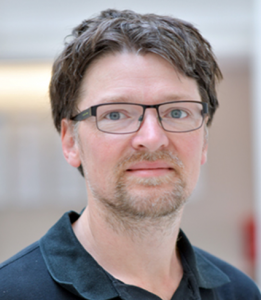
Charité Universitätsmedizin Berlin
Germany
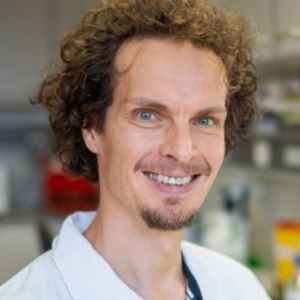
Technische Universität Berlin
Germany
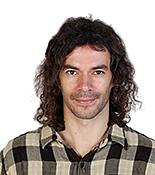
EMBL Heidelberg
Germany
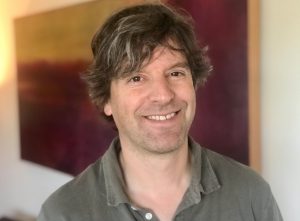
University of Washington
USA
(Virtual speaker)

University Medical Center Utrecht
The Netherlands
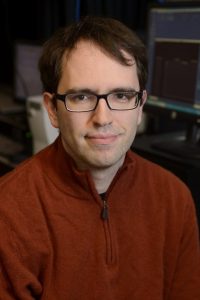
John Hopkins University
USA
University of Washington
USA
(Virtual speaker)

EMBL Heidelberg
Germany

Friedrich Miescher Institute for Biomedical Research
Switzerland

EMBL Heidelberg
Germany
Got something to say? Tweet it! #EMBOOmics
Please find the poster listing here.
| Time (Europe/Berlin) | Speaker |
|---|---|
| 12:15 – 13:30 | Registration and light refreshments |
| 13:30 – 13:45 | Opening remarks by Prisca Liberali and Arnaud Krebs |
| 13:45 – 18:00 | Session 1 – From molecules to cells Chairs: Mounia Lagha – The Institute of Molecular Genetics of Montpellier, France and Dan Lu – Harvard Medical School, USA |
| 13:45 – 14:10 | High-throughput discovery and systematic sequence characterization of human transcriptional regulators Lacra Bintu – Stanford University, USA |
| 14:10 – 14:30 | Deep mutational scanning of entire human protein interaction domain families Guillaume Diss – Friedrich Miescher Institute for Biomedical Research, Switzerland |
| 14:30 – 14:55 | Self-organization in intestinal organoids Prisca Liberali – Friedrich Miescher Institute for Biomedical Research, Switzerland |
| 14:55 – 15:15 | SPIDR: a novel and highly multiplexed method for mapping RNA-protein interactions to comprehensively study post-transcriptional gene expression regulation Marko Jovanovic – Columbia University, USA |
| 15:15 – 15:40 | In-cell interaction networks to understand integrated processes Juri Rappsilber – Technische Universität Berlin, Germany |
| 15:40 – 16:10 | Coffee break |
| 16:10 – 16:35 | Inspecting roles of 3D chromatin organization in transcription by multiplexed chromatin imaging Marcelo Nollmann – CNRS; INSERM, France |
| 16:35 – 16:55 | Uncovering the molecular rules of chromatin module formation Judith Kribelbauer – Swiss Federal Institute of Technology Lausanne, Switzerland |
| 16:55 – 17:15 | Genomic context and histone marks define pioneer binding to nucleosomes Luca Mariani – Brigham and Women’s Hospital; Harvard Medical School, USA |
| 17:15 – 17:35 | Single-molecule live-cell imaging shows that DNA supercoiling restricts the transcriptional bursting of neighboring eukaryotic genes Tineke Lenstra – Netherlands Cancer Institute; Oncode Institute, The Netherlands |
| 17:35 – 18:00 | Analysis of tumor ecosystems by spatial proteomics for precision medicine Bernd Bodenmiller – University of Zurich; ETH Zurich, Switzerland Recording not available |
| 18:00 – 18:30 | Available for onsite participants only Panel discussion 1: Understanding genomes – current breakthrough in the field (with pre-dinner drinks at ATC Foyer) Panellists: Lacra Bintu – Stanford University, USA Justin Crocker – EMBL Heidelberg, Germany Mounia Lagha – The Institute of Molecular Genetics of Montpellier, France Zohar Shipony – Ultima Genomics, Israel Moderated by Arnaud Krebs – EMBL Heidelberg, Germany |
| 18:30 – 20:00 | Dinner (EMBL canteen) |
| 20:00 – 21:30 | Social event: pub quiz (EMBL canteen) |
| 21:30 – 22:30 | Social event: networking drinks (ATC Rooftop Lounge) |
| Time (Europe/Berlin) | Speaker |
|---|---|
| 09:00 – 12:10 | Session 2 – From molecules to cells (continued) Chairs: Judith Kribelbauer – Swiss Federal Institute of Technology Lausanne, Switzerland and Guillaume Diss – Friedrich Miescher Institute for Biomedical Research, Switzerland |
| 09:00 – 09:25 | Biochemical activity is the default DNA state in eukaryotes Carl de Boer – University of British Columbia, Canada |
| 09:25 – 09:45 | Dynamic p53 post-translational modifications regulate cellular fates Dan Lu – Harvard Medical School, USA |
| 09:45 – 10:05 | Chromatin accessibility is a two-tier process regulated by transcription factor pioneering and enhancer activation Kaelan Brennan – Stowers Institute for Medical Research, USA |
| 10:05 – 10:30 | Elucidating mechanisms underlying coupled transcription initiation and 3’ end cleavag Athma Pai – University of Massachusetts Chan Medical School, USA |
| 10:30 – 11:00 | Coffee break |
| 11:00 – 11:25 | Understanding gene regulation using single molecule genomics Arnaud Krebs – EMBL Heidelberg, Germany |
| 11:25 – 11:45 | A race to identify the genes that support neutrophil cell migration Nathan Belliveau – University of Washington; HHMI, USA |
| 11:45 – 12:10 | Revealing promoter-enhancer communication mechanisms by high-resolution single-gene imaging Alexandros Pertsinidis – The Sloan Kettering Institute, USA Recording not available |
| 12:10 – 13:45 | Lunch |
| 13:45 – 15:45 | Poster session 1 (odd numbers) – ATC Helix A Poster listing |
| 15:45 – 18:55 | Session 3 – From cells to organs Chairs: Nathan Belliveau – University of Washington; HHMI, USA and Lacra Bintu – Stanford University, USA |
| 15:45 – 16:10 | Multimodal perception links cellular state to decision-making in single cells Lucas Pelkmans – University of Zurich, Switzerland |
| 16:10 – 16:30 | Clonally resolved single-cell multi-omics identifies routes of cellular differentiation in acute myeloid leukemia Lars Velten – Center for Genomic Regulation (CRG), Spain |
| 16:30 – 16:50 | CRISPRi screen of schizophrenia risk genes elucidates the role of epigenetic regulators in neurons and progenitors Annique Claringbould – EMBL Heidelberg, Germany |
| 16:50 – 17:15 | Gene expression dynamics during the awakening of the zygotic genome Mounia Lagha – The Institute of Molecular Genetics of Montpellier, France Recording not available |
| 17:15 – 17:45 | Coffee break |
| 17:45 – 18:10 | Finding biology in microscopy images with machine learning Anna Kreshuk – EMBL Heidelberg, Germany |
| 18:10 – 18:30 | Barcode-free predictions of cell lineages from single cell transcriptome data Almut Eisele – EPFL, Switzerland Recording not available |
| 18:30 – 18:55 | Learning the rules of mRNA processing from massively parallel experiments and machine learning Georg Seelig – University of Washington, USA (Virtual speaker) |
| 18:55 – 20:30 | Dinner (EMBL canteen) |
| Time (Europe/Berlin) | Speaker |
|---|---|
| 09:00 – 12:05 | Session 4 – From cells to organs (continued) Chairs: Lars Velten – Center for Genomic Regulation (CRG), Spain and Christine Mayr – Memorial Sloan Kettering Cancer Center, USA |
| 09:00 – 09:25 | Sphingolipids control dermal fibroblast heterogeneity Giovanni D’Angelo – Swiss Federal Institute of Technology Lausanne, Switzerland |
| 09:25 – 09:45 | Applications of optimal transport theory to single-cell analyses Angela Goncalves – German Cancer Research Center (DKFZ), Germany |
| 09:45 – 10:05 | Can we accurately estimate gene regulatory networks from single-cell data? Julio Saez-Rodriguez – University of Heidelberg, Germany |
| 10:05 – 10:35 | Coffee break |
| 10:35 – 11:00 | Unraveling the tumor microenvironment using multiplexed imaging Leeat Keren – Weizmann Institute of Science, Israel Recording not available |
| 11:00 – 11:20 | RANKL-dependent ONECUT2 regulation of Enterocyte and Microfold cell differentiation in the small intestine; a multi-omics study Maria Victoria Luna Velez – Radboud University Nijmegen, The Netherlands |
| 11:20 – 11:40 | Laboratory evolution of flies to morphogen dosage via rapid maternal changes reveals predictable outcomes Justin Crocker – EMBL Heidelberg, Germany |
| 11:40 – 12:05 | Heterogeneity in tumors: evolving genomes at single-cell resolution Hugo Snippert – University Medical Center Utrecht, The Netherlands |
| 12:05 – 13:30 | Lunch Optional: walk/run together (registered participants only) |
| 13:30 – 15:30 | Poster session 2 (even numbers) – ATC Helix A Poster listing |
| 15:30 – 18:40 | Session 5 – From biological systems to disease Chairs: Frank Albert – University of Minnesota, USA and Athma Pai – University of Massachusetts Chan Medical School, USA |
| 15:30 – 15:55 | A high dimensional atlas of phosphorylation-dependent signaling Judit Villen – University of Washington, USA (Virtual speaker) |
| 15:55 – 16:20 | Functional proteomics to assess the system-scale nature of metabolism Markus Ralser – Charité Universitätsmedizin Berlin, Germany |
| 16:20 – 16:40 | ProteasomeID: quantitative mapping of proteasome interactomes and substrates for in vitro and in vivo studies Alessandro Ori – Leibniz Institute on Aging – Fritz Lipmann Institute, Germany |
| 16:40 – 17:05 | Towards a tissue specific and structurally resolved human interactome Pedro Beltrao – EMBL-EBI Hinxton, UK and ETH Zurich, Switzerland |
| 17:05 – 17:35 | Coffee break |
| 17:35 – 17:55 | Correlated light and electron microscopy volume imaging of organoid cell cultures Edoardo D Imprima – EMBL Heidelberg, Germany Recording not available |
| 17:55 – 18:15 | From regulatory landscapes to complex intercellular dependencies using the gastruloid model system Luca Braccioli – The Netherlands Cancer Institute, The Netherlands |
| 18:15 – 18:40 | Enabling discovery by in-cell structural biology Julia Mahamid – EMBL Heidelberg, Germany |
| 18:40 – 19:10 | Available for onsite participants only Panel discussion 2: From protein identification to function (with pre-dinner drinks at ATC Foyer) Panellists: Pedro Beltrao – EMBL-EBI Hinxton, UK and ETH Zurich, Switzerland Guillaume Diss – Friedrich Miescher Institute for Biomedical Research, Switzerland Marko Jovanovic – Columbia University, USA Rodrigo Villaseñor – Biomedical Center Munich, Germany Moderated by Mikhail Savitski – EMBL Heidelberg, Germany |
| 19:10 – 21:00 | Conference dinner (EMBL canteen) |
| 21:00 – 23:00 | Social evening with live DJ (ATC Rooftop Lounge) |
| Time (Europe/Berlin) | Speaker |
|---|---|
| 09:00 – 12:30 | Session 6 – From biological systems to disease (continued) Chairs: Pedro Beltrao – EMBL-EBI Hinxton, UK and ETH Zurich, Switzerland and Alessandro Ori – Leibniz Institute on Aging – Fritz Lipmann Institute, Germany |
| 09:00 – 09:25 | Deciphering gene regulatory networks and enhancer logic from single-cell multi-omics data Stein Aerts – KU Leuven, Belgium |
| 09:25 – 09:45 | Exon-resolution functional genomics uncovers critical protein regions for cellular function Thomas Gonatopoulos Pournatzis – National Cancer Institute; National Institutes of Health, USA Recording not available |
| 09:45 – 10:05 | Targeted transcription factor degradation and nascent transcriptomics reveal a new model of core transcriptional regulatory circuitry Maxim Pimkin – Dana-Farber Cancer Institute and Boston Children’s Hospital and Harvard Medical School |
| 10:05 – 10:30 | Biophysical proteomics Mikhail Savitski – EMBL Heidelberg, Germany |
| 10:30 – 11:00 | Coffee break |
| 11:00 – 11:25 | Identification of global and gene-specific regulators of alternative polyadenylation using Perturb-seq Christine Mayr – Memorial Sloan Kettering Cancer Center, USA |
| 11:25 – 11:45 | Exploring the vulnerabilities of EGFR-dependent breast cancer cells with single cell lineage-tracing Melania Franchini – University of Naples “Federico II”, Italy |
| 11:45 – 12:05 | Genetic variation in ubiquitin system genes creates complex, pathway-specific effects on proteasomal protein degradation Frank Albert – University of Minnesota, USA |
| 12:05 – 12:30 | Decoding the central dogma with single molecules Winston Timp – John Hopkins University, USA |
| 12:30 – 12:45 | Closing remarks and poster prize announcement |
| 12:45 | Packed lunch and departure |
| 13:15 | Optional: Shuttle bus to Frankfurt Airport (Terminal 1) Tickets can be purchased on-site during the conference for 25 EUR |
On-site registration fees include admission, conference materials, COVID-19 safety measures, meals and coffee breaks. Participants are expected to book and pay their own accommodation and travel expenses.
Virtual registration fees include access to all of the talks (live-streamed and on demand) and facility to submit questions.
| On-site Academia | €450 |
| On-site PhD Student | €350 |
| On-site Industry | €750 |
| Virtual Academia | €175 |
| Virtual PhD Student | €125 |
| Virtual Industry | €225 |
NO visa support letters will be issued until payment of the registration fee is confirmed.
Accredited journalists may be eligible to register for complimentary press registration. Registrants may be required to provide accreditation or equivalent proof of press membership after registration. Please contact Raili Pall for more information. Please note that we do not offer complimentary registrations for editors of scientific journals.
Registration will be on a first-come first-served basis. Your place can only be confirmed after payment of the registration fee. If you are added to our waiting list, please consider taking advantage of our offerings to participate virtually.
On-site participants: Types of payments accepted are international bank transfers and credit card payments.
Virtual participants: We are only able to accept card payments. In exceptional cases we can accept bank transfers. Please contact events@embl.de for details.
Only registered participants attending the on-site event are eligible to submit an abstract. Abstracts will not be accepted from virtual participants.
After you have logged in and successfully registered, you will receive an email asking you to submit your abstract. Click on the link provided and enter your abstract in the text box provided. Alternatively you can submit your abstract by clicking on the link on the confirmation page directly after registering. The same login credentials are used for both processes.
Please note:
Title: The title should not exceed 20 words. Only the first word of the title should start with a capital letter and the rest of the title should be in lowercase.
Authors and affiliations: Please fill in the author’s details as requested in the online form. The compulsory details are: First Name, Last Name, Organisation Name (Affiliation or Company), Country and Email. Mark only one author as the role of First author and please don’t forget to indicate who will be presenting. The order of the authors will be listed as follows: First Author, Co-First Author (alphabetically if multiple), co-author(s) (in the order added by the submitter).
Presentation types: When submitting your abstract, you can apply for an oral or poster presentation. A selection process will take place with the results announced 2-3 weeks after the abstract submission deadline.
Please check our FAQs pages for further information on how to submit an abstract.
Limited financial assistance is provided by the EMBL Advanced Training Centre Corporate Partnership Programme and EMBO in the form of both registration fee waivers and travel grants. Availability is limited to participants attending on-site events in Heidelberg and will be indicated during the abstract or motivation letter submission process.
Your place in the meeting is only confirmed by paying the registration fee, which is mandatory even when receiving a fee waiver.
The fee waiver will cover the registration sum that you have paid to attend the course or conference.
The travel grant will cover the cost of travel (airfare, train, bus, taxi, accommodation, visa, and/or registration fees*) and is provided up to specified caps which are normally as follows:
– up to €400 for participants travelling to an EMBL Course, EMBL Conference or EMBO|EMBL Symposium from within Europe.
– up to €1000 for participants travelling to an EMBL Course, EMBL Conference or EMBO|EMBL Symposium from outside Europe.
– up to €500 for any participant travelling to an EMBO Practical Course or EMBO Workshop.
– up to €1000 for any participant working in Chile, India, Singapore or Taiwan travelling to an EMBO Practical Course or EMBO Workshop.
*Registration fees are only covered for EMBO Practical Courses or EMBO Workshops
The organisers may reduce the grant cap to accommodate more participants. Recipients will be notified of their travel cap amount when they are informed of the outcome of their application. Original receipts must be provided with your signature for all costs incurred within two months of completion of travel. Scanned copies cannot be accepted.
For EMBO Practical Course or EMBO Workshop participants with children, there is the possibility to apply for a childcare grant to offset child care costs incurred by participants or speakers when participating at a course or conference. Eligible costs include fees for a baby-sitter or child-care facility, travel costs for a care giver, or travel costs for taking the child to the meeting etc. Please note that priority will be given to early stage researchers. A maximum amount of 500 EUR can be awarded per participant applying for an EMBO Childcare Grant. In order to apply for this grant for EMBO Workshops, you must be registered by the abstract submission deadline.
You may apply for financial assistance when submitting your motivation letter for courses, and abstract for conferences. In your application you will be asked to answer questions regarding why your lab cannot fund your attendance and how your attendance will make a difference to your career. Application for financial support will not affect the outcome of your registration application.
The scientific organisers will select the recipients of all financial assistance during the motivation letter or abstract selection process. Results will be announced approximately 6-8 weeks before the event start date, however for some events this may be delayed. Selection results do not impact your admission to the meeting. Selection is based on your current work or study location, the reasons for needing financial support and the impact this event will have on your career.
Costs will be reimbursed after the meeting only once a reimbursement form and original receipts (from travel costs) have been received.
View our list of external funding opportunities and information on attending a conference as an event reporter.
For further information about financial assistance please refer to the FAQ page.
Accommodation is not included in the conference registration fee.
As further changes in our events are possible due to COVID-19, you should book flights, trains and hotels with flexible options and favourable cancellation conditions.
The hotels below have rooms on hold for participants until 14 October 2022, in some cases at special rates. Please quote the booking code OMX22-01 and confirm the exact price of the room with the hotel directly.
Conference shuttle buses are free of charge for participants, and depart from designated bus stops near the hotels to EMBL and back, mornings and evenings.
Download the conference bus schedule here.
The bus stops for this conference are:
View Conference shuttle bus stops and hotels in a larger map. Please note that not every bus stop will be used for every event.
Address: EMBL, Meyerhofstraße 1, 69117 Heidelberg, Germany. For further information on getting to EMBL Heidelberg visit Public Transportation to the Venue. For information about accommodation and local transportation please refer to the FAQ page.
All meals and coffee breaks are included in the registration fee. Our catering staff will prepare a wide variety of vegetarian meals, meat and fish dishes, soups, pasta, fresh fruit and vegetables, as well as a variety of desserts.
Please wear your badge at all times when serving yourself.
No food or drinks are allowed in the auditorium.
There are lockers available next to the stairs leading down into the Auditorium. You will find some of those equipped with sockets to charge your smartphone/tablet etc.
In most places the electricity is 220 volts AC (50 cycles). An adaptor and a plug that fits the German socket may be needed for your appliances/laptop (i.e. American, Japanese, etc.). A USB charging station for electronic devices is available at the registration desk.
EMBL Merchandise is available on Mon – Thu (9 am – 12 pm). If you are interested in purchasing an EMBL souvenir (products presented in the glass display in the registration area), please ask at the registration desk for more information.
Please read EMBL’s COVID-19 safety policy for on-site events.
Do not smoke in any EMBL building.
Eating and drinking is prohibited in the Auditorium and all laboratories.
Do not enter any restricted areas or the laboratories unless instructed to do so.
If first aid is required …
In case of fire …
Beyond first aid…
Please remember to bring your own medication, if needed, to the conference. Note that the next pharmacy is a 4-minute drive from the EMBL, but for many medications you will be required to see a doctor to get a prescription.
Ensure in advance that your medical insurance will cover you during your visit in the event that you do need to see a doctor while in Heidelberg. In any case, the EMBL Course and Conference Office will assist you to get to the pharmacy and a doctor of your choice if necessary.
Wi-Fi is available everywhere on the premises (no password required), just log on to ATC-Guest. The eduroam network (secure, world-wide roaming access service developed for the international research and education community) is also available.
‘’Lost and Found’’ are kept at the registration desk until the end of the conference.
There are lockers available on-site to store your luggage, which require a 2 EURO coin to operate. There is another luggage room on level E0, which is free to use but remains unlocked during the conference.
There is a nursing room available in the ATC Rooftop Lounge on level A29.
During the conference an EMBL Photographer may be taking photographs. If you would not like to appear in these, please inform the photographer or a member of the Course and Conference Office.
We can help printing your boarding passes/train ticket. Please send it to events@embl.de and collect your print-outs at the registration desk.
There is a room for prayer, mediation and yoga located on level E0 behind the Auditorium. Please be respectful of other participants using the room.
A variety of activities in Heidelberg can be found on the website of Heidelberg Marketing.
During the event we provide conference shuttle buses to and from EMBL. In addition, there is the public bus 39A that serves the EMBL campus and taxis can be easily booked at any time. Information on the conference shuttle buses can be found on the individual event website and more detailed information on travelling to EMBL can be found on our Travel Information page.
| English | German |
|---|---|
| Hello | Hallo |
| Goodbye | Auf Wiedersehen |
| Good morning | Guten Morgen |
| Good afternoon | Guten Tag |
| Good evening | Guten Abend |
| Good night | Gute Nacht |
| I’m sorry | Tut mir leid |
| Excuse me… | Entschuldigen Sie |
| How are you? | Wie geht’s? |
| I’m fine thanks. And you? | Mir geht es gut , danke, und dir/Ihnen? |
| What is your name | Wie heisst du? Wie heissen Sie? |
| My name is | Ich heisse |
| Do you speak English | Sprechen Sie Englisch? |
| I don’t understand | Ich verstehe nicht |
| Please speak more slowly | Können Sie bitte langsamer sprechen |
| Thank you | Danke schön |
| Where is the toilet? | Wo ist die Toilette? |
| Please call me a taxi | Bitte rufen Sie mir ein Taxi |
| How do I get to….? | Wie komme ich zum/zur…..? |
| A beer/two beers, please | Ein Bier/zwei Bier bitte |
| A glass of red/white wine please | Ein Glas Rot/Weisswein bitte |
| The menu, please | Die Speisekarte, bitte |
| Is there a local speciality? | Gibt es eine Spezialität aus dieser Gegend? |
| I’m Vegetarian | Ich bin Vegetarier |
| It was delicious | Es war hervorragend |
| The bill, please | Die Rechnung, bitte |
| I have a headache | Ich habe Kopfschmerzen |
| I have a sore throat | Ich habe Halsschmerzen |
| My stomach hurts | Ich habe Magenschmerzen |
| I’m allergic to | Ich bin allergisch gegen |
| I need a doctor who speaks English | Gibt es einen Arzt, der Englisch spricht? |
Please note that only on-site participants are able to submit abstracts and participate in the poster sessions.
We are using an event platform for this conference. More information about the platform will be shared ahead of the conference.
Additional information can be found in our Code of Conduct.
It is important to stay healthy and move around, especially when you are attending an event virtually. We have put together a few coffee break stretches and yoga videos in the conference platform for you to enjoy during the event.
Please use the Q&A function in the event platform.
If you have any other questions, you can go to the Help Desk in the event platform. Click on ‘more’ on the top menu and click Help Desk.
The programme is planned based on the Europe/Berlin time zone, unless otherwise stated. Please take your time zone into consideration when planning your attendance.
Please find additional information including FAQs, terms and conditions, COVID-19 safety policy and travelling to EMBL on our Information for Participants page.
COVID-19 information for on-site events at EMBL Heidelberg can be found in our COVID-19 FAQs.
Bronze sponsor
Media partner
International Union of Biochemistry and Molecular Biology
Molecular Systems Biology, an EMBO Press journal
Open Biology, a Royal Society journal
Sponsorship opportunities
We offer a variety of event sponsoring possibilities, with the flexibility to select a set sponsorship package or combine individual sponsorship options to suit your event budget. Discounts are available for companies sponsoring multiple events at EMBL Heidelberg. View other conferences, or contact sponsorship@embl.de for further information on sponsoring possibilities.
If you are interested in becoming a media partner of this event, please visit our media partnerships webpage.
Want to let others know you’re attending this event? Take a look at our shareable media and feel free to use them in your social media channels or presentations.

Date: 15 - 18 Nov 2022
Location: EMBL Heidelberg and Virtual
Venue: EMBL Advanced Training Centre
Deadline(s):
Abstract submission: Closed
Registration (On-site): Closed
Registration (Virtual): Closed
Organisers:
Contact: Raili Pall